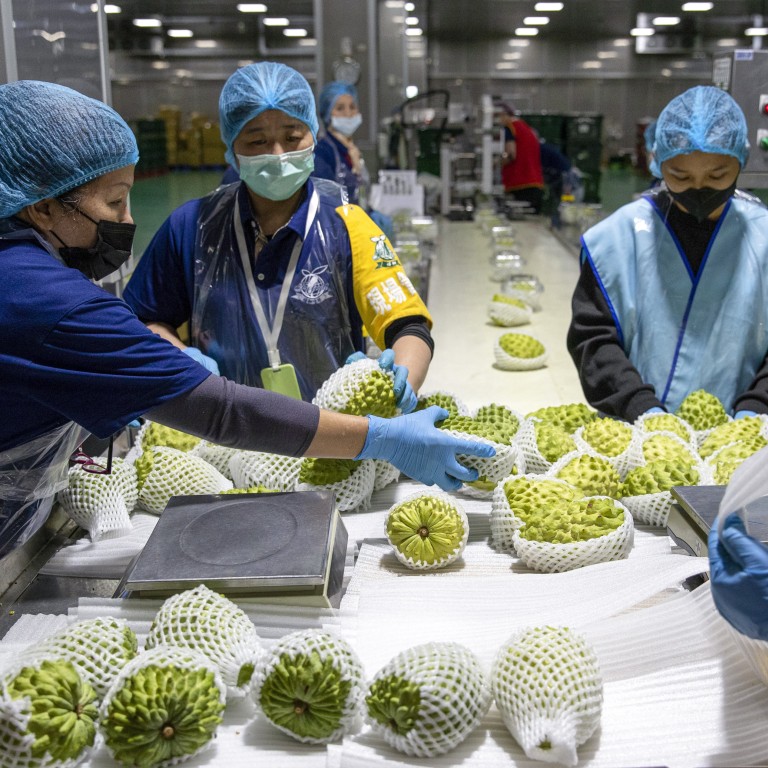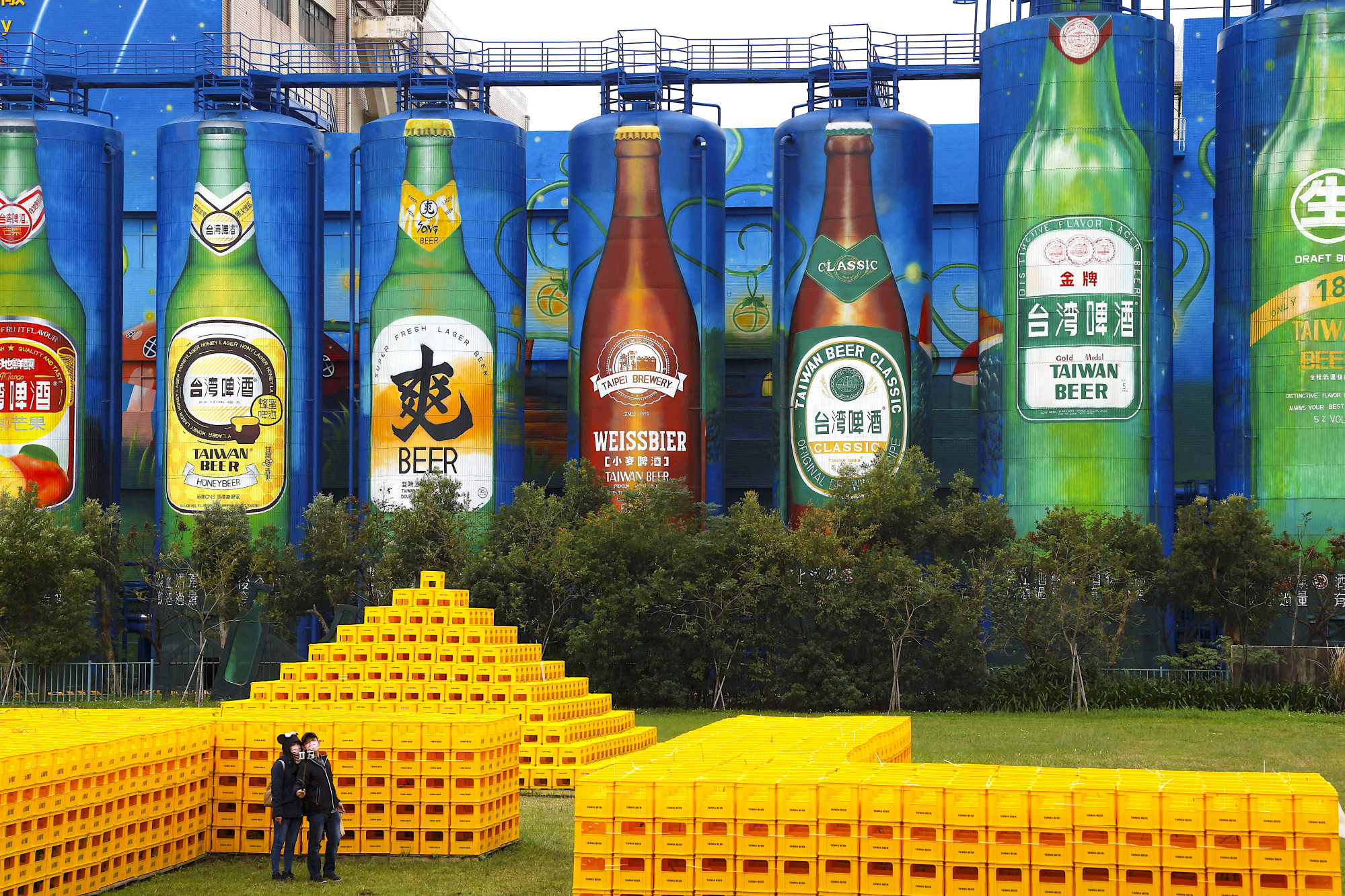
Taipei, Beijing trade barbs over latest import bans as Taiwan plans WTO case
- Thousands of Taiwanese food and drink products – from seafood to alcohol – have been blocked from mainland China
- Taipei calls it unfair and another move to pressure the island, while Beijing says accusations are an act of ‘political manipulation’
At least 2,400 items are affected, ranging from seafood to alcohol and pastry products, and worth an estimated NT$7 billion (US$228 million), the self-ruled island’s government said early this week.
Beijing said Taiwanese suppliers had failed to correctly register the items for the Chinese mainland.

Taipei on Wednesday called the move unfair and arbitrary, and said it was the latest attempt to put pressure on the island – which Beijing claims as its own territory – and that it would go to the WTO to seek fair handling of the issue. Both sides are WTO members.
“While foreign companies are able to register online, Taiwanese firms must submit their registration in paper form,” Health Minister Hsueh Jui-yuan told reporters in Taipei.
He added that it was also optional for foreign companies to give formulas for their food products, while Taiwanese firms had to supply them.
Hsueh said that was unfair to Taiwanese companies and that mainland authorities had failed to give a reasonable response to queries from the health ministry as to why some applications had been rejected.
Meanwhile, Agriculture Minister Chen Chi-chung told lawmakers that the mainland’s General Administration of Customs had not informed Taiwanese companies when their registration was not accepted, and they only found out by accessing its website.
“We will continue to raise the issue with the WTO while helping local firms to submit supplementary papers to the Chinese side for registration and will initiate relevant mechanisms to help the affected firms,” he said at a meeting of the legislature on Wednesday.
“I believe there will be more [import bans] on our farm products to China and [Taiwanese firms] should brace for the next impact.”
EU-Asean statement drops language about Taiwan ahead of summit
In Beijing, the mainland’s Taiwan Affairs Office called Taipei’s accusations an act of “political manipulation”.
“The mainland side had already issued the food product import registration regulations in April 2021, and started implementing them on January 1, 2022, and they apply to all countries and areas outside China,” office spokeswoman Zhu Fenglian said in a statement late on Tuesday.
Zhu said the regulations were legal, transparent and open, that they fully complied with international practices, and that the WTO had been informed of them.
She said Taiwan had been notified of the requirements in October last year and there had been ample time to prepare.
“What [Taiwan’s ruling] Democratic Progressive Party authorities claim is a malicious distortion of fact and an attempt to smear [Beijing], which is a cover-up political manipulation,” she said.
But Taiwan’s economic affairs ministry said the island had sought a discussion on the regulations nine times via the WTO without success.
The Food and Drug Administration also said many Taiwanese firms had decided to withdraw their applications because they did not want to specify the formula used for their products – and provide other details including images of the production process – out of concern it could be leaked and copied.
“Of the 2,409 applications submitted [by Taiwanese firms], some 1,600 have been dropped by the applicants,” FDA director general Wu Shou-mei said.
Record 18 PLA bombers enter Taiwan’s air zone in latest assault drill

